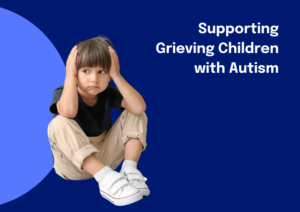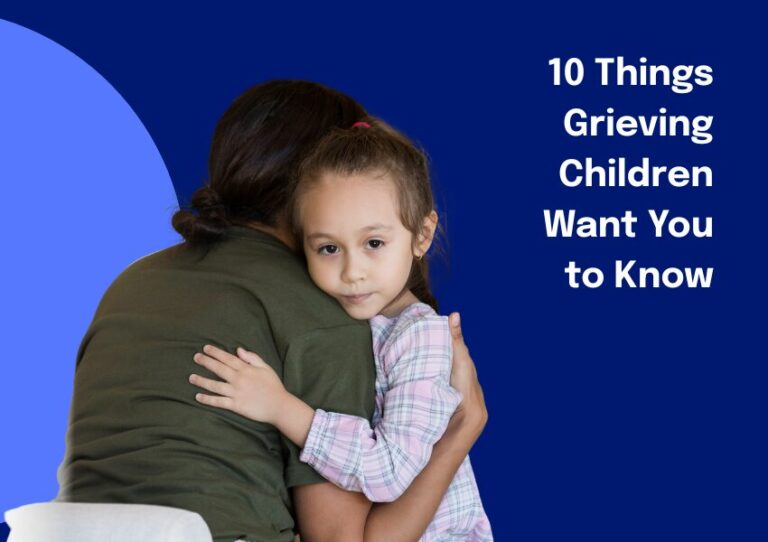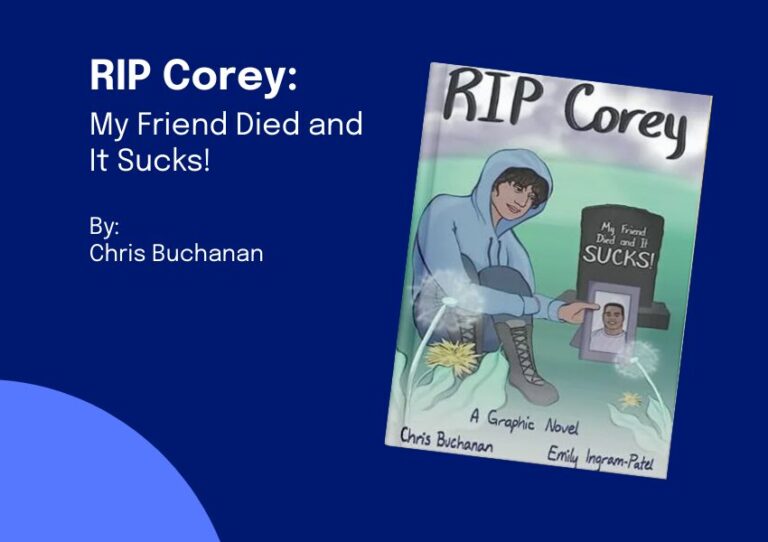Supporting Grieving Children with Autism
 All grieving children need support and children with Autism need special care and attention around grief rituals as well as their understanding of death. If you are living with, and/or have been supporting a child with Autism you may already have considered the following information. We want you to have a one-stop resource when it comes to children’s grief and Autism.
All grieving children need support and children with Autism need special care and attention around grief rituals as well as their understanding of death. If you are living with, and/or have been supporting a child with Autism you may already have considered the following information. We want you to have a one-stop resource when it comes to children’s grief and Autism.
Grief and its rituals are social and cultural experiences with nuanced social rules. Autism can make social imitation and perception of social cues very difficult.
It’s important to realize some children with Autism will not respond or show any emotion at all, even those who are high functioning. It also may take a while for them to process the death and behaviors might emerge later on. However, children with Autism are more susceptible to anxiety and depression. Here are some tips to help explain death and support children with Autism who are grieving.
How do I tell my child with Autism about a death?
1. Just the facts: If your child has Autism, it is important to provide concrete, a fact-based explanation of the death and what death is. We have provided a series of downloadable visuals to help.
2. Children with Autism can be very concrete and do well when verbal explanations are paired with visual explanation tools.
3. Avoid euphemisms and religious comforts when explaining the death.
4. Explain slowly and in terms your child understands.
Helpful resources for having the conversation:
- Seven Suggestions for Explaining Death to Children
- Social Stories: When Someone Dies
- Talking to Children and Teens about Illness and Death
- Book: I Have a Question about Death: A Book for Children with Autism Spectrum Disorder or Other Special Needs
What can I expect after telling my child about the death?
Children with Autism may struggle to interpret the wide range of emotions and emotional intensity seen after a death.
1. Expect them to stick to the facts when talking about the death and the deceased. Demonstrate what you would like them to do using modeling and visuals. Try creating a contingency map.
2. You can most likely expect behavioral shifts. Remember: behavior is communication.
3. Children with Autism are more sensitive to changes in routine. It is important to return to a familiar routine as quickly as possible.
4. Expect the unexpected in social situations following the death. Children can be blunt in questions and comments surrounding the death and/or deceased.
5. Let extended family, and/or people who don’t come in contact with your child regularly that they should expect a lack of eye contact when discussing the death and/or deceased.
6. You may notice an increase in repetitive motor movements and inflexibility as well as repetitive verbalizations focused on the deceased/death.
What helps a grieving child with Autism?
1. Ask the child if they need or want touch. Some will require more hugging/hand holding, while others will prefer no touching tactile stimulation.
2. Give them an object (or stimulation tool) to hold to self-sooth. Be prepared with the child’s special interest object/book, tactile objects, and/or weighted blankets.
3. Creating social stories. This can be challenging. If your child is seeing an occupational therapist, they can help you create one. This book can help: Over 150 Social Stories that Teach Everyday Social Skills to Children and Adults with Autism and their Peers.
4. Explain societal expressions of grief in simple terms.
5. Demonstrate or model social/cultural expectations.
6. Look at picture books with your child showing emotions, sad, angry, happy, scared, to explain what he or she may see from other family members during a funeral. The Goodbye Book, by Todd Parr
7. Creating a conversational script for them to use when talking about the deceased and/or death. Help them practice the script.
8. Ear plugs and noise eliminating headphones can help children stay in a mourning ritual and not be over stimulated
9. Give them a way to be part of the group or separate. Be specific about where they can be free of social interaction and noise. Create “I need a break” cards for them to use when they need to escape a social situation.
10. Set appropriate expectations with both other adult and children family members, those in classrooms, and in group settings. It might be helpful for them not to expect any particular response from the child.
11. Check in with parents and teachers who are close to them. They will have tips and tricks on how to best support the child.
Should my child with Autism attend the funeral or mourning ritual?
1. Explain to the child what to expect at the event using words and visuals. Be careful not to overwhelm the child with too much information/visuals.
2. Give the child the choice to attend. Emotional closure and social support from the service that benefits the neurotypical world may not translate as helpful to the autistic spectrum individual.
3. Have comfort or special interest items.
4. Have an exit plan for your child for mourning rituals. Develop a contingency map.


